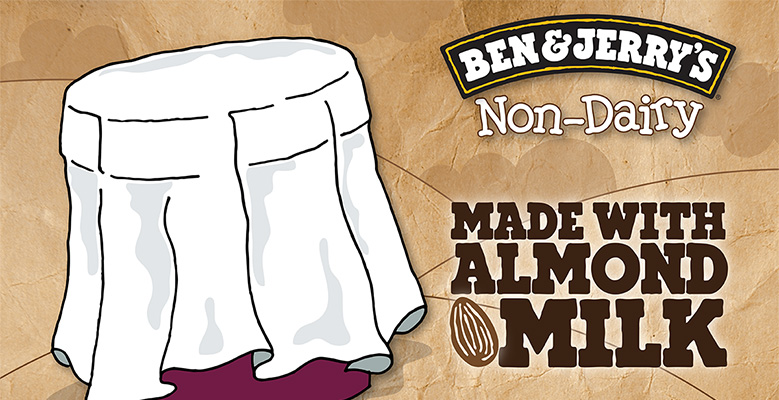Dairy-free demand is on the rise. TCBY now serves dairy-free yogurt and Dunkin’ now offers almond milk; even Ben & Jerry’s just announced that it’s introducing a vegan almond milk ice cream in 2016.
According to a new report by Markets and Markets, the non-dairy market is growing — and fast. Plant-based alternatives are projected to reach a whopping $19.5 billion in sales worldwide by 2020.
This comes at a time when concerns about animal welfare, allergies and other health risks are becoming more prominent in the public’s awareness. Millions of consumers are making the switch to plant-based milks and other non-dairy options.
The Asia-Pacific region was the largest market for dairy alternatives in 2014, the report says. That change in behavior is driven by “increasing consumer awareness, growing incidences of lactose intolerance and milk allergy, and growing preference towards vegan diet.”
In the U.S. alone, the dairy alternatives market is currently worth $2.09 billion — and it’s rapidly growing.
“The dairy alternative market in the U.S. is expected to mark a growth of 13.2 percent between 2015 and 2018 based on the strength of diversification in market,” Shivani Mishra, research analyst in the food & beverage domain for Markets and Markets, told Latest Vegan News.
Another recent report by Mintel highlighted this segment as a major trend in the food world:
“Veggie burgers and non-dairy milks have escaped the realm of substitutes primarily for people with dietary concerns and followers of vegetarian diets. Instead, the growing ranks of novel protein sources and potential replacements appeal to the everyday consumer, foreshadowing a profoundly changed marketplace in which what was formerly ‘alternative’ could take over the mainstream.”
With all the delicious, cruelty-free alternatives these days, why would anyone need to use animals at all? Meatless (and milk-less) is going mainstream.


